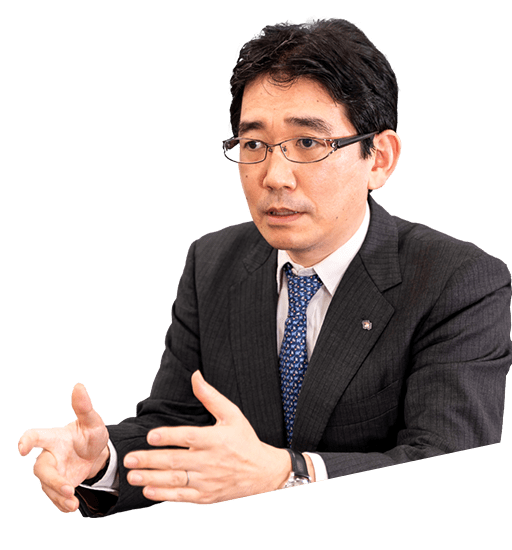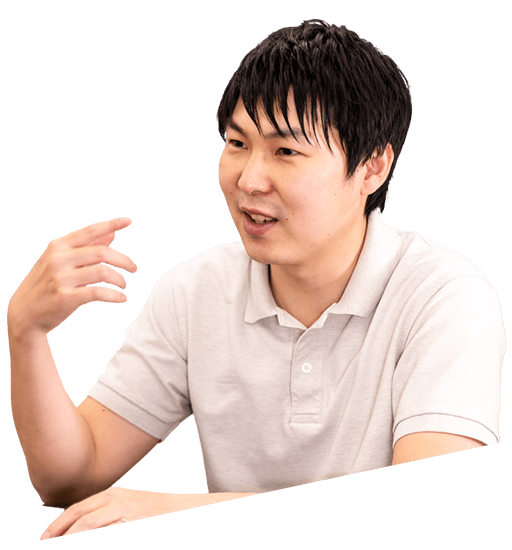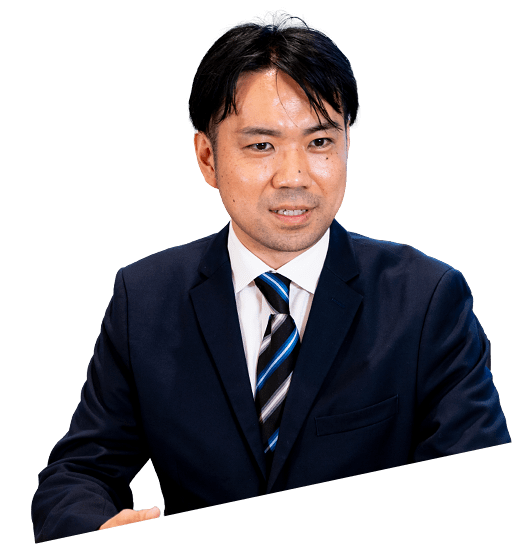Do not stop with theory.
Demonstrate your skills in complex financial systems.
INTERVIEW / FUMIO KAWAMOTO
FUMIO KAWAMOTO
Joined the company in 2017
After completing his graduate studies in computer science, Fumio joined a foreign securities firm, working in the technology department of its Tokyo Branch. He was responsible for the designing, development and testing of back-office systems such as settlement system. He also worked in New York for four years. In January 2017, he joined Nomura Securities, where he has since been working in the Asia Team of Chief Technology Architect (CTA) of Wholesale IT Department, as an architect.
![]()
The financial industry has a proactive approach to automation and ample computing resources.
― What kind of research were you involved in as a student?
At university, I majored in information science from the undergraduate level, and studied computer science from the basics. In my laboratory, I focused on algorithm optimization, especially automatic optimization using partial computation. I devised a program transformation method to derive efficient algorithms by abstracting computer programs, replacing them with mathematical equations, and solving the equations. By using these methods, I also developed a method of applying partial computations to programs more generally.
― Why did you choose Nomura Securities as your place of employment?
The first reason was that I was attracted to the system environment of financial institutions in this industry. Financial institutions are actively using software to automate their processes, and they have plenty of computing resources to do so. Financial institutions have many quantitative data, which is an advantage for system and algorithm development. The second reason was that I wanted to work in a field where I could utilize my knowledge of computer science. Getting hired and assigned to a technology department was a precondition for me. The third and most important reason was that there were many excellent senior employees in this industry and I wanted to work with and learn from them.
Do not stop with theory, but work through it until it is implemented as a function.
― Please tell us about your current department and the work you are in charge of.
I am currently working in the Asia Team of Chief Technology Architect (CTA) of Wholesale IT Department. I am responsible for strategy development, especially in the area of AI and machine learning, as well as analyzing the system network across the wholesale domain.
In my work, I consider technical issues of various groups across the organization and what kind of technology we should use as a company, which requires knowledge and understanding of a wide range of computer languages, libraries, and services. In this respect, the knowledge of computer science that I continued to learn from the basics when I was a student and the habit of continuing to learn is important and helpful. For example, in analyzing systems network, I levererge my knowledge of graph analysis and optimization of analysis algorithms.― What is the work environment like in the Wholesale IT Department?
My current department is very international, and I communicate frequently with members of the CTA Office team in the US, UK, and India. The atmosphere is very similar to the workplace of the foreign company I used to work in. The structure is flat; we work around projects and play our respective roles, not based on our titles. It is a challenging but rewarding job to work with members who have extensive experience not only in finance but also in technology, and to consider system strategy from not only a domestic but also a global perspective.
― Please tell us about the most memorable episodes of your work so far.
In my current work, system network analysis left a strong impression on me. In financial institutions, systems that perform various functions are linked together, and the relationships between them are so complex that it seems impossible for a single person to fully understand them. Graphs describing systems’ relationships can be drawn by a human, but they are too abstract to be exhaustive and tend to lack accuracy. On the other hand, automatically generated graphs would be too complex to be practical. In this context, we succeeded in abstracting and simplifying the network and automatically generate graphs at a level that people could understand, which made me feel a sense of fulfillment because we implemented a function beyond the level of theory. Furthermore, this approach can be applied to other propositions such as making it easier to understand system problems and helping with auditing.
![]()
The effort behind skills; to stay focused on "what I love most".
― Please tell us what you keep in mind when you work and what you are particular about.
I would like to continue being directly involved in the development of computer programs. I would like to leverage my knowledge and experience by being involved in creating things that work in the so-called "field". Creating software, in these days, involves both programming and machine learning. I feel happy when I succeed in developing software that continue to function and contribute to generating profits for the company even after it leaves my hands. Software should reduce, not increase, people’s work. To make sure it does, I run thorough automated testing of the software I develop.Considering system strategy is a responsible job as it affects the infrastructure of the future systems of the company of this size. At the same time, it is a very rewarding job as it gives me the opportunity to keep up with the latest technological trends and to talk to people from verious companies that provide new technologies and services.
― Finally, what message would you like to convey to our readers?
I started writing codes when I was in elementary school. I loved creating programs that behaved the way I envisioned them in my head, and I knew then that I wanted to keep doing this. Now, I am in a position where I can focus on "what I like best", which I consider to be a great blessing. At the same time, however, keeping doing “what I like” necessitates making efforts. I need to continue to learn new languages and libraries, and study and share information on technology trends in the industry and other technical matters. In addition, I need to continue to learn a wide range of things, such as marketing techniques for internally disseminating useful technologies, and the philosophy on which our activities are based. I enjoy these efforts, and I am grateful for the work environment that let me enjoy them.
I believe it is a worthwhile challenge to have a specialized area of expertise and apply those skills to the complex systems of a financial institution. Nomura Securities' wholesale IT domain, where system development, testing, and maintenance are constantly carried out on an international scale, is a very attractive career option that allows you to expand your potential in various directions.

Do not stop with theory. Demonstrate your skills in complex financial systems.
FUMIO KAWAMOTO

Pursuing a world’s first at the center of a paradigm shift in asset management technology. Aiming for both academic research and social implementation.
KEI NAKAGAWA

Contribute to the global business market through cross-border team collaboration
KENJIRO OYA
Application period for 2024 has ended. Thank you for your interest and hope to see you next year.
MESSAGE_Message
Significance of choosing the Nomura Group as your partner after completing your doctorate.
NEW RECRUITMENT PROGRAM_What is the Nomura Passport?
Introducing the “Nomura Passport,” a new system for doctoral students.
INTERVIEW_Career trajectories for Ph.Ds
What comes after acquiring your doctorate? The Nomura Group staff at work.
WORKSHOP AREAS_Workshop hosting departments
Here is where you can prove yourself, and here are the fields that await you.

